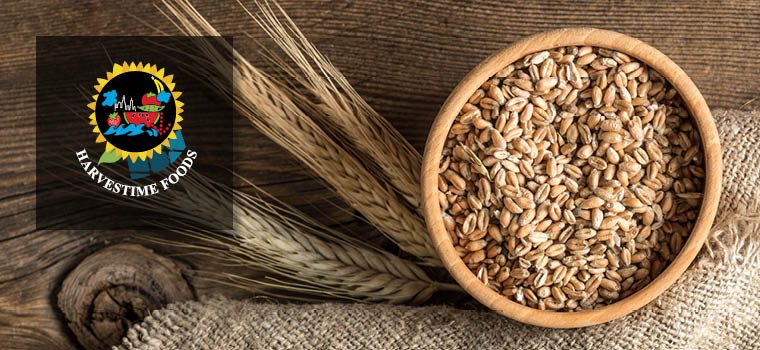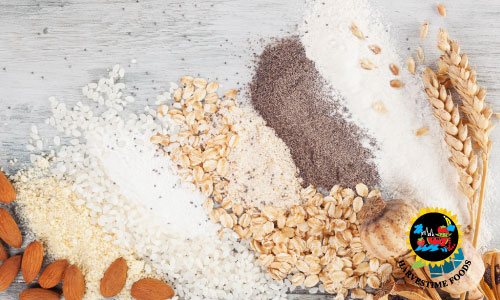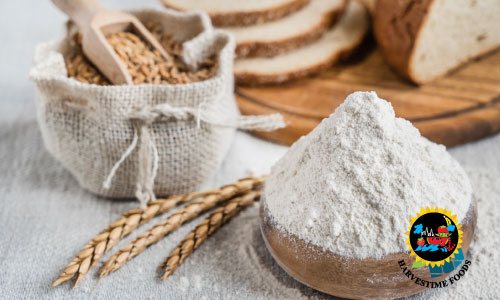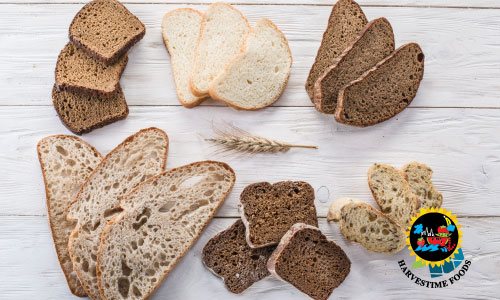The Flour Issue: Wheat, Whole Wheat, White, Corn and other Gluten-free Flours to use for baking.

The Flour Issue: Wheat, Whole Wheat, White, Corn, and other Gluten-free Flours to use for baking.
As we head into December and the holidays we head into the year’s peak baking season. From Christmas and holiday cookies to pies, brownies, and beyond, many will be gathering in their kitchens to prepare all sorts of treasured family recipes and special baked goods this month. At the heart of the art of baking lies one of the most important and controversial) food ingredients around: flour.
In this issue, we will delve into the world of flour in its many forms, explore the benefits (and drawbacks) of each type, and share some of our favorite flour products to try out this holiday baking season!
What are wheat flours?
Wheat flour is a fine powder made from ground wheat. Sounds simple enough, but there are distinctions between white flour, wheat flour, and whole-wheat flour that are important to know

What’s the difference between whole wheat flour and wheat, or white flour?
Whole-wheat flour is flour made from the entire wheat kernel, whereas wheat flour and white flour are progressively more processed, meaning less of the wheat kernel is used in the flour. Most of the vitamins, protein, and fiber from the wheat kernel are lost in the processing, so whole-wheat flour is the most nutritious.

What is the best flour for baking?
White (or all-purpose flour) and wheat flours are great for baking. Wheat flour in general will have a slightly more grainy texture than all-purpose. Pastry flour has a lower protein count and is softer than all-purpose, which makes it ideal for baked goods. It can be substituted in baked-good recipes wherever tenderness is the desired outcome.
Pro Tip: Even better yet, swap out your all-purpose flour for whole-wheat pastry flour and your baked goods will be moist and more nutritious.

One final note on wheat flours: it’s best to avoid them if you’re sensitive or intolerant to gluten!
All wheat flours, however, have high gluten contents, which is not always suitable for everyone’s digestive tract. If you can digest wheat, it can be nutritious, but if you are gluten-sensitive, intolerant, or simply wanting to avoid gluten (as it can be an irritant), opt for another type of flour.
Shop Wheat Flours
Bob’s Whole Wheat Pastry Flour
Bob’s Stone Ground Whole Wheat Flour
Corn Flours
Corn flour is naturally gluten-free and has lower sodium and carb content than wheat flour. It also has more fiber and a higher fat content than wheat flour. Corn flour has a particular flavor that is delicious and slightly sweet, yet less neutral than wheat flour or several other types of flour. It can be substituted in recipes for wheat flour, and works wonderfully in breads, pancakes, biscuits, and waffles.
Shop Corn Flours
La Venezolana Yellow Corn Flour
You can also use other gluten-free flours for baking like tapioca, coconut, or almond flours.
In addition to corn flour, there are many other types of gluten-free flours to explore. From gluten-free all-purpose flour options to nut, coconut, and tapioca flours, there have never been more gluten-free choices available! Each type of gluten-free flour has its own unique texture, flavor, and nutritional value, so you can select the appropriate variety for you depending on your unique dietary and baking needs. If you’re not familiar with some of these gluten-free flours, we recommend experimenting a bit to find your favorites.